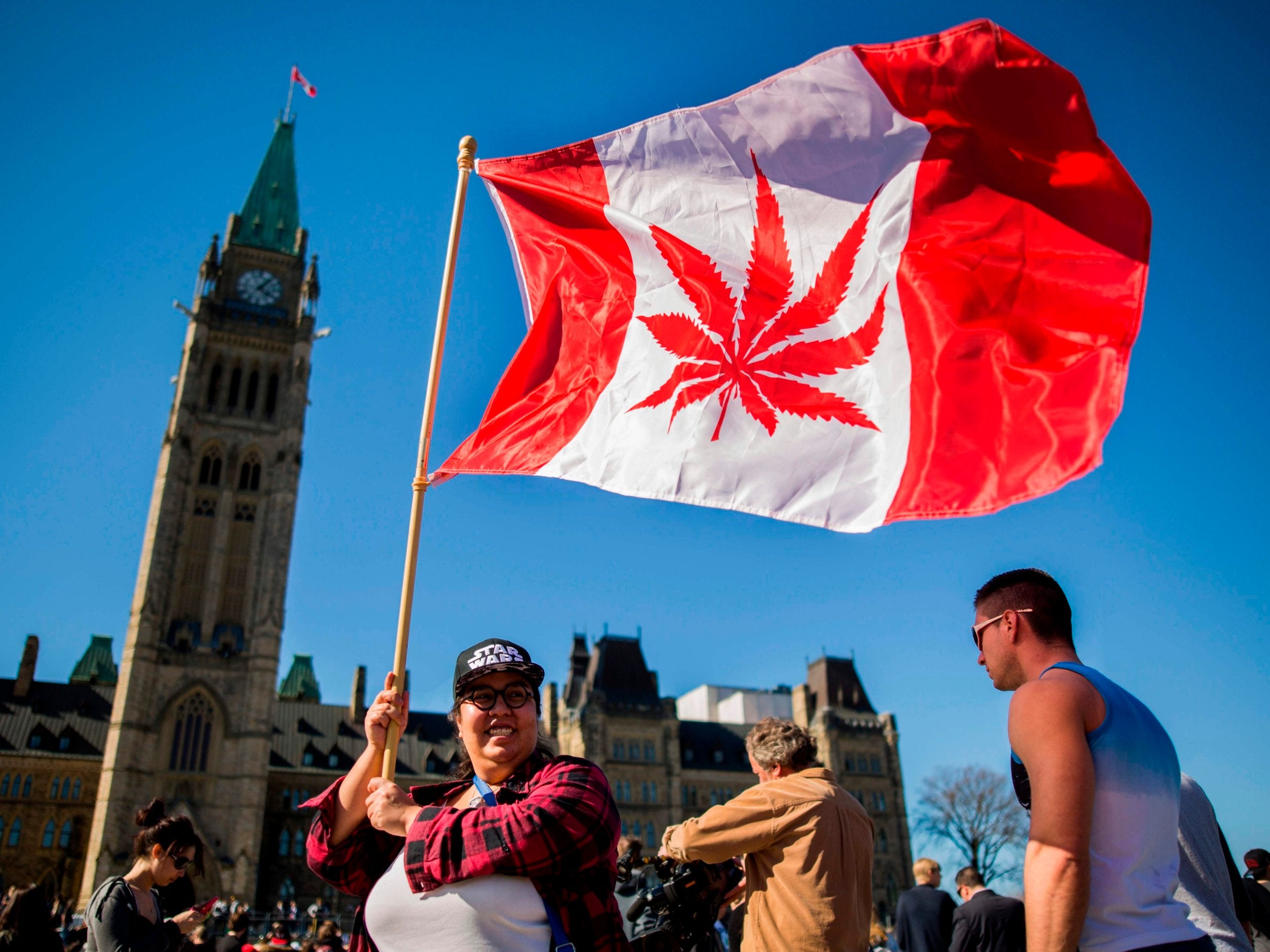Canada legalises marijuana as a recreational drug
Country becomes only second in the world to allow regulated sale of drug nationwide

Cannabis use for recreational purposes in Canada will be legalised this autumn, Justin Trudeau has said.
The country's parliament passed a law legalising the drug on Tuesday, which the prime minister said would shift the market for the drug away from organised crime and protect the nation’s youth.
Canada is only the second country in the world to make cannabis legal nationwide.
“The legislation is transformative,” said justice minister Jody Wilson-Raybould, who said the move “marks a wholesale shift in how our country approaches cannabis, leaving behind a failed model of prohibition”.
The Cannabis Act passed its final hurdle by 52 votes to 29 in the Senate.
The federal government had said provincial and territorial authorities will need eight to 12 weeks following the bill’s and royal assent to prepare for retail sales.
“It is our hope as of 17 October there will be a smooth operation of retail cannabis outlets operated by the provinces with an online mail delivery system operated by the provinces that will ensure that this happens in an orderly fashion,” Mr Trudeau said.
He added: “Over the following months and indeed years we will completely replace or almost completely replace the organised crime market on that.”
Uruguay became the first country to legalise cannabis in 2013, while a number of US states have also voted to permit recreational use of the drug.
Canada’s federal government is to publish regulations that will govern the trade, but each province will work up its own rules for cannabis sales.
Many questions remain unanswered, including how police will test motorists suspected of driving under the influence, what will happen to previous cannabis-related convictions, and the rules on home cultivation.
The provinces of Quebec and Manitoba have already decided to ban home-grown cannabis, even though the federal bill specifies that individuals can grow up to four plants per household.
“Provinces can set their own laws. If individuals are challenging that law, they can challenge it,” Ms Wilson-Raybould said.
Mr Trudeau’s government will not discuss pardons of past convictions until legalisation is in effect.
“There’s no point looking at pardons while the old law is in the books,” he said.
The move comes as Theresa May faces calls to legalise cannabis in Britain, with former foreign secretary William Hague declaring the war on the drug “comprehensively and irreversibly lost”.
The UK government is reviewing the medical use of the drug following two cases in which children with epilepsy were denied cannabis oil that their parents said had prevented them having seizures.
In the US, nine states and the District of Columbia have legalised marijuana.
California, home to one in eight Americans, launched the country’s biggest legal marijuana marketplace on 1 January.
Canada’s legalisation of cannabis was greeted with enthusiasm by campaigners and businesses in the US.
Don Hartleben, who manages Dank of America, a retail cannabis store just south of the border in Blaine, Washington, said Canada’s legalisation would bring a potential business boom.
Many of his customers are Canadian tourists who are terrified of trying to bring pot across the border, he said.
He added: “People ask me all the time, ‘Isn’t legalisation in Canada going to hurt your business? I tell them, ‘No! The more it’s legal, the more people are going to feel safe to buy my product.”’
Join our commenting forum
Join thought-provoking conversations, follow other Independent readers and see their replies
Comments
Bookmark popover
Removed from bookmarks